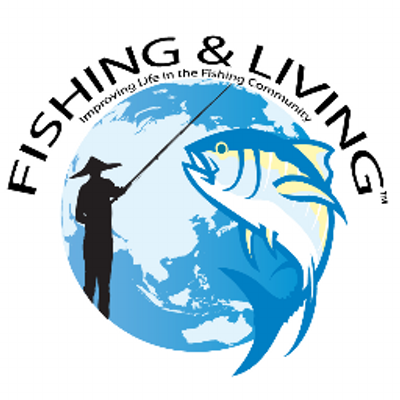December 2014
Last November, a small group of handline fishermen in Waepure, Buru Island obtained the first Fair Trade certification for wild capture fisheries in the world! Those involved in achieving this certification share their experiences with us.
Ahmad Sanduan: Chairman FairTrade fisherman group in Assilulu, Ambon Island, Maluku Province

Name:
Ahmad Sanduan
Age: 42
Engines: 1 GT
Length of ship:
8.5m/28ft
Ship Ownership: Private
Fishing gear used:
Hand line
Type of fish caught:
Yellowfin Tuna
“As a fisherman I am very proud of achieving the first Fair Trade certification for capture fisheries. I am grateful of MDPI’s and ANOVA’s support who introduced us to the Fair Trade program and helped us develop it for our community. In Assilulu, we never had a successful group of fishermen before the Fair Trade program. Our first attempt to form a group failed due to the absence of a facilitator and lack of proper management. We see the fair trade program as a great opportunity because in addition to FT premium, we are learning to organize ourselves professionally and independently. The Fair Trade program will help us develop our community by giving us the means to develop and invest in projects that aim to reduce poverty and protect the environment. For instance, ban on destructive fishing methods, ban on the capture of protected animals, transparent fish trade, ban on child labor, improved fish preservation techniques to get the best return and many more will be undertaken to improve the lives of fishermen and the environment.”
Ufu: MDPI Field Site Manager in Assilulu, Ambon Island, Maluku Province
 “My responsibility is to manage all MDPI field activities such as data collection, Fair Trade, IFFIT (Traceability), and community development projects. Every month I make a work plan and schedule for each activity. I am proud to have been given this important responsibility: the work is exciting and fulfilling, with each activity having different challenges. For instance, the level of education of fishermen varies greatly with some being completely illiterate. My job involves dealing with individual characters and working with fishermen whose knowledge is limited to what they experience at sea. This presents challenges as we try to introduce scientific data and concepts on how the fishery works. My job also consists in building trusting relationships with fishermen and motivate them to take the necessary steps such as forming fishermen groups. I want to tell them that through the Fair Trade program fisherman can no longer be the poorest profession in Indonesia.”
“My responsibility is to manage all MDPI field activities such as data collection, Fair Trade, IFFIT (Traceability), and community development projects. Every month I make a work plan and schedule for each activity. I am proud to have been given this important responsibility: the work is exciting and fulfilling, with each activity having different challenges. For instance, the level of education of fishermen varies greatly with some being completely illiterate. My job involves dealing with individual characters and working with fishermen whose knowledge is limited to what they experience at sea. This presents challenges as we try to introduce scientific data and concepts on how the fishery works. My job also consists in building trusting relationships with fishermen and motivate them to take the necessary steps such as forming fishermen groups. I want to tell them that through the Fair Trade program fisherman can no longer be the poorest profession in Indonesia.”
“From the beginning, Fair Trade was a challenge but I saw it as great opportunity to realize the ideals of poor fishing communities. Fishermen have a strong desire to be able to live in prosperity and therefore my top priority is to, through the Fair Trade program, give them the means and knowledge to do so. I believe that the Fair Trade is exactly what they need with its three principles: economic, social and environmental.”
Toni Mirawijaya: Local fish trader in Waepure, Buru Island
Pak Toni was thrilled when he heard the news that the fishermen of Waepure got the Fair Trade certification. “My first reaction was to invite head of Waepure village and all fair trade fishermen to meet and celebrate the wonderful news. I truly believe that the FairTrade program will help us, all fishermen and the people of Waepure to realize our dreams for improving our communities”. With Fair Trade certification, his dream has come true. “I am extremely proud of our fishermen”.
FairTrade is a people based certification model that, at the same time, support environmental fisheries improvements. FairTrade certification covers 6 aspects:
1) Structures must be in place to ensure fair business practices (Fisher Association, Fair Trade committee and a Market Access Partner)
2) Empowerment: conduct meetings of the Fishers association, establish bank account and democratic management of the FairTrade premiums
3) Economic development: fishermen are paid a share of the catch, conditions of employment comply with the FairTrade standard and fishers receive a premium (1-10% on top of the regular price)
4) Social responsibility: no bonded labor, no child labor, occupational health & safety et.
5) Resource management: biodiversity protection, overfishing, scientific data collection on fish stocks, waste management etc.
Recent Posts
Helmets Distribution to Fishermen’s Children in Local Communities in Bali
We distributed helmets to all fishermen children in two local coastal communities in Bali. The main goal of this event […]
Read moreAnova FoodNominated for Award of Corporate Excellence (ACE) by Secretary Hillary Clinton
The Award for Corporate Excellence (ACE) is given annually by the U.S. State Department to American companies who exhibit good […]
Read moreSchool Children Awareness Programs in Awareness Lombok
June 2012 We hosted an event coinciding with World Ocean Day and Coral Triangle Day. The event was to raise […]
Read more